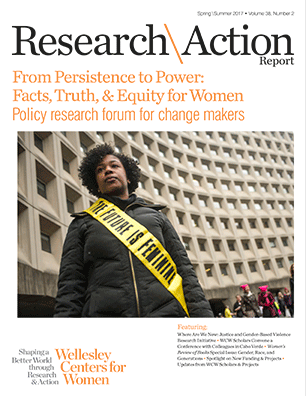NIOST Recognized for Supporting Health & Wellness
The National Afterschool Association (NAA) has named the National Institute on Out-of-School Time (NIOST) as one of its 2017 Most Influential in Health & Wellness. The NAA sought to honor those whose service, action, and leadership align with and support Healthy Eating and Physical Activity (HEPA) Standards and affect large numbers of youth, families, or afterschool professionals. Several years ago, NIOST, with funding from the Robert Wood Johnson Foundation’s Active Living and Healthy Eating Research divisions, examined physical activity and eating experiences in a national sample of out-of-school time programs. This work led to the founding of the Healthy Out-of-School Time (HOST) Coalition (niost.org/HOST) and the writing of the HEPA Standards with NIOST’s partners—the YMCA of the USA and Jean Wiecha at RTI International. The NAA adopted the standards in 2011 and takes a national strategy for sharing, disseminating, and promoting the standards.
New Book by WRB Editor
The Off Season, a forthcoming novel by Amy Hoffman, M.F.A., editor-in-chief of Women’s Review of Books, will be published by the University of Wisconsin Press in October 2017. Hoffman will be speaking about her writing throughout the year to various communities, including during a November 30 Lunchtime Seminar at the Wellesley Centers for Women. In May, she presented “From the Archives” talk about Bad Attitude magazine at Boston’s LGBT History Project.
Jean Baker Miller Training Institute Update
In June, the Jean Baker Miller Training Institute (JBMTI), a legacy project of the Wellesley Centers for Women (WCW), held “Gathering Our Power,” a multi-day participatory meeting during which long-time supporters and Relational- Cultural Theory (RCT) practitioners shared experiences and connected to discuss how their work can further contribute to clinical, social, and institutional progress. Facilitators, including JBMTI faculty and WCW Senior Scholars Amy Banks, M.D., Judith Jordan, Ph.D., and Maureen Walker, Ph.D., came together with other facilitators to address questions such as: How do we deal with political issues in our clinical practices? How do we practice radical empathy in the midst of radical difference? What are the tools we need to hone to connect across difference? What does an attitude of learning look like? Recently, JBMTI established a separate nonprofit (501c3), The Center for Relational-Cultural Growth, which will serve as the official organization and funding arm for the institute.


